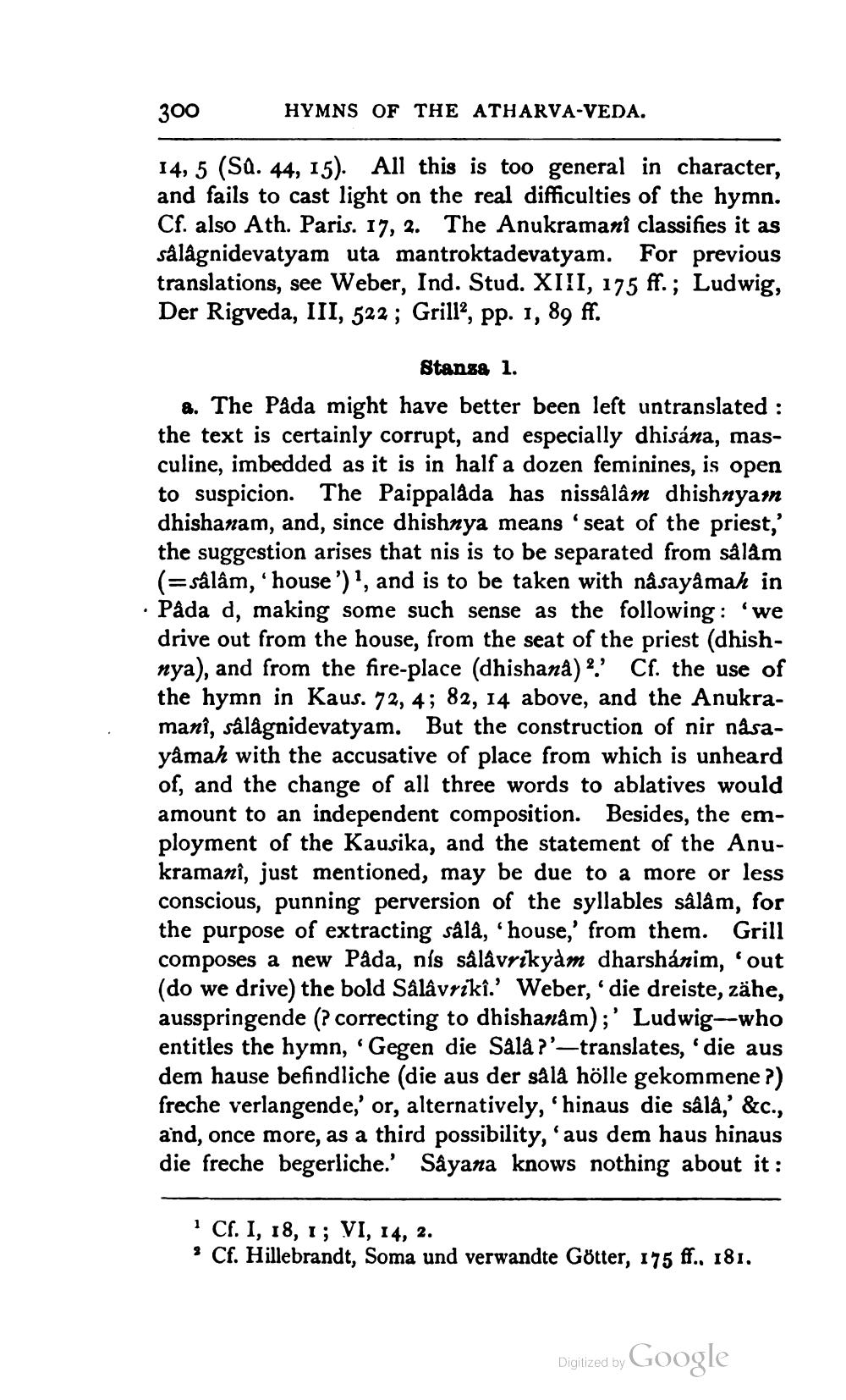________________
300
HYMNS OF THE ATHARVA-VEDA.
14, 5 (SQ. 44, 15). All this is too general in character, and fails to cast light on the real difficulties of the hymn. Cf. also Ath. Paris. 17, 2. The Anukramani classifies it as sålågnidevatyam uta mantroktadevatyam. For previous translations, see Weber, Ind. Stud. XIII, 175 ff.; Ludwig, Der Rigveda, III, 522 ; Grill?, pp. 1, 89 ff.
Stansa 1. 8. The Påda might have better been left untranslated : the text is certainly corrupt, and especially dhisána, masculine, imbedded as it is in half a dozen feminines, is open to suspicion. The Paippalada has nissâlâm dhishnya dhishanam, and, since dhishnya means 'seat of the priest,' the suggestion arises that nis is to be separated from sålàm
(=sâlâm, 'house')', and is to be taken with nåsayâmah in · Påda d, making some such sense as the following: 'we
drive out from the house, from the seat of the priest (dhishnya), and from the fire-place (dhishana) 2. Cf. the use of the hymn in Kaus. 72, 4; 82, 14 above, and the Anukramani, sålågnidevatyam. But the construction of nir nasayåmah with the accusative of place from which is unheard of, and the change of all three words to ablatives would amount to an independent composition. Besides, the employment of the Kausika, and the statement of the Anukramani, just mentioned, may be due to a more or less conscious, punning perversion of the syllables sâlâm, for the purpose of extracting sålå, 'house,' from them. Grill composes a new Påda, nis sålåvrikyam dharshánim, 'out (do we drive) the bold Salâvrikî.' Weber, 'die dreiste, zähe, ausspringende (? correcting to dhishanam);' Ludwig--who entitles the hymn, Gegen die Salà?'-translates, 'die aus dem hause befindliche (die aus der så lå hölle gekommene ?) freche verlangende,' or, alternatively, 'hinaus die sala,' &c., and, once more, as a third possibility, aus dem haus hinaus die freche begerliche.' Sayana knows nothing about it:
1 Cf. I, 18, 1; VI, 14, 2. 3 Cf. Hillebrandt, Soma und verwandte Götter, 175 ff., 181.
Digized by Google




